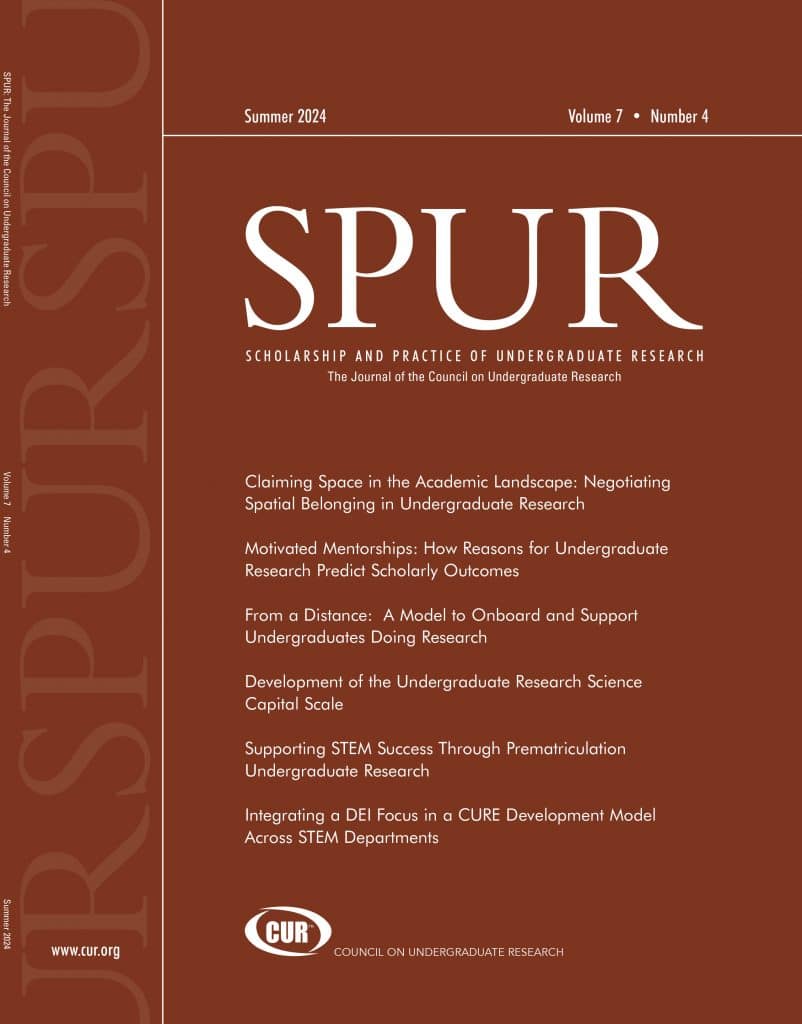SPUR (2024) 7 (4): https://doi.org/10.18833/spur/7/4/10
In this article, the authors describe a model for onboarding and supporting undergraduates during a multisite research project. Undergraduate students had hands-on experiences conducting social media research focused on adolescent and young adult cancer patients and their caregivers. The research was conducted across multiple sites using online platforms and students were onboarded online and worked remotely. Mentoring undergraduates in research is an essential faculty responsibility. However, research involving sensitive topics such as cancer can be emotionally difficult. Students were mentored throughout the project by faculty with regularly scheduled weekly or biweekly meetings. Mental health resources were provided to support students with the difficult experiences they were studying. Students and faculty described how they benefited from this research experience, including lessons learned from each other.
Recommended Citation: Bloom, Rosaleen D., Erin T. Kaseda, Erin M. Gandelman, Steven A. Miller, J. Benjamin Bitterman, Kate Namuhmuh. 2024. From a Distance: A Model to Onboard and Support Undergraduates Doing Research. Scholarship and Practice of Undergraduate Research 7 (4): 37-43. https://doi.org/10.18833/spur/7/4/10
More Articles in this Issue
No posts found


